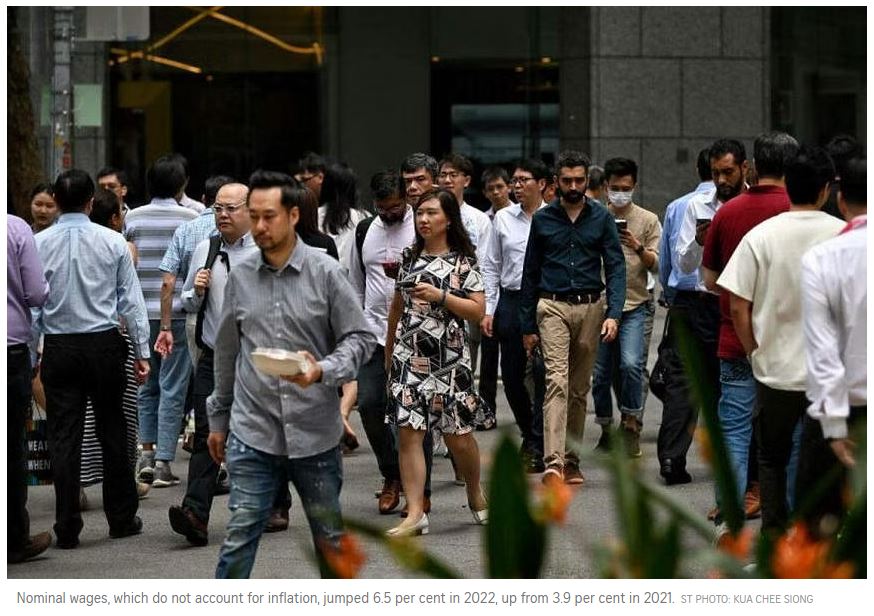Real wages in Singapore up just 0.4% in 2022 despite pay going up by decade high of 6.5%
SINGAPORE – Employers in Singapore hiked total wages by the most in a decade in 2022 because of the tight labour market, but high inflation slashed real pay rises to less than in the previous year.
Nominal wages, which do not account for inflation, jumped 6.5 per cent in 2022, up from 3.9 per cent in 2021, according to Ministry of Manpower (MOM) data released on Monday.
However, high inflation meant that real total wages grew by just 0.4 per cent, lower than the 1.6 per cent clocked in 2021 and the lowest since 2012. In 2022, headline inflation hit 6.1 per cent, significantly higher than 2021’s 2.3 per cent.
Moreover, real basic wages, excluding employer Central Provident Fund contributions, declined for the first time since 2012, falling by 1 per cent.
MOM said total nominal wage and real wage growth are expected to moderate in 2023 as firms are likely to approach salary increments with caution against the backdrop of the global economic slowdown and a more uncertain business environment.
For 2022, nearly 82 per cent of employees received wage rises compared with just under 70 per cent in 2021.
This came as almost three in four employers gave wage increases in 2022, up from six in 10 in the previous year and about seven in 10 in 2019. It followed from growth in the proportion of employers – more than eight in 10 – turning a profit for the second year running.
Establishments that cut employees’ wages remained the minority at 5.2 per cent, with the remaining 22.6 per cent leaving wages unchanged.
Those that raised wages gave larger increases in 2022 on average – 7.9 per cent compared with 6.3 per cent in 2021.
The degree of wage cuts was also smaller than in the previous year among those that did so, with pay reductions averaging 4.5 per cent compared with 2021’s 5.2 per cent.
MOM noted that all industries experienced higher wage growth in 2022 compared with 2021.
“However, the magnitude of increase varied across industries.
“Accommodation and retail trade registered above-average wage increases (9.7 per cent and 6.7 per cent, respectively) as firms in these industries raised wages to attract and retain workers amidst the strong recovery in tourism demand,” said the ministry.
It added that the outward-oriented sectors of financial services, information and communications, and professional services continued to register strong wage increases of between 7.6 per cent and 9 per cent in 2022, alongside sustained manpower demand in these industries.


 English
English




